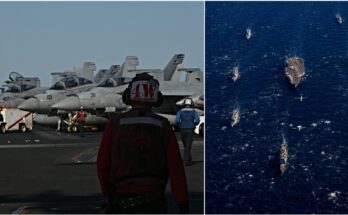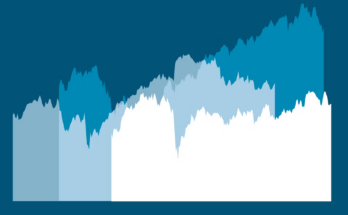Tensions are rising again in the Caribbean Sea. Six airlines canceled their routes to Venezuela on Saturday, after the United States warned civil aviation of “increased military activity” amid the deployment of American troops in the Caribbean, the airline union said.
Spanish company Iberia, Portuguese TAP, Colombian Avianca, Trinidad Caribbean, Brazil’s GOL and Chile’s Latam have canceled their operations, said the president of the Association of Venezuelan Airlines (ALAV), Marisela de Loaiza.
Over the past few days, the United States has deployed the world’s largest aircraft carrier to the Caribbean, accompanied by a fleet of warships and fighter planes to combat drug trafficking. An operation condemned by Venezuelan President Nicolás Maduro as a “threat” aimed at overthrowing him.
The Federal Aviation Administration (FAA) on Friday urged aircraft operating in Venezuelan airspace to “exercise caution” due to “the deteriorating security situation and increased military activity in and around Venezuela.”
Lula wants an interview with Trump
Brazilian President Lula said he was “very concerned” on Sunday about the American military presence in the Caribbean Sea, near Venezuela, and added that he intended to discuss it with American President Donald Trump.
“I am very concerned about the American military presence that the United States is deploying in the Caribbean Sea. This is very worrying to me and I intend to discuss it with President Trump, because this worries me,” Lula told reporters in Johannesburg after the G20 summit. “Let us not repeat the mistakes that occurred in the war between Russia and Ukraine. In other words, once a shot is fired, it is difficult to predict how this war will end,” Lula warned, noting that his country borders Venezuela. “So it is important for us to try to find a solution before this starts,” he concluded.
European countries limit intelligence sharing
Meanwhile, France, the Netherlands and the United Kingdom, which have territories in the region, have decided not to share information they have that could help the United States carry out its operations. Asked last week on Radio Caraibes (RCI) the head of France’s anti-narcotics office (Ofast), Dimitri Zoulas distanced himself from the American military action. “In the current situation, no European country and France will send operational information to America if they can launch a military attack on the ship,” he said.
The Netherlands, whose ABC islands (Aruba, Bonaire, Curaçao) lie almost 50 km from the Venezuelan coast, is very concerned about the rising tensions. “They will be on the front lines” in case of war, European military sources estimate. “We are very alert to the politicization of our services and violations of human rights,” said Erik Akerboom, director of the Dutch civil intelligence and counter-espionage agency a few days ago in the newspaper De Volkskrant.
A Venezuelan “cartel” designated as “terrorist”
The United States will designate the Sun Cartel as a foreign terrorist organization on Monday, which they say is led by Venezuelan President Nicolás Maduro, putting additional pressure on Venezuela, alongside calls for dialogue.
It is the State Department led by Marco Rubio, who is considered a hardliner, that maintains the FTO (Foreign Terrorist Organization) list of Islamist, separatist or guerrilla groups and, most recently, gangs. Rubio intends to add the “Cartel de los Soles,” an organization whose existence has yet to be proven, according to many experts, which has instead given rise to a network of corruption that is permissive of illicit activities.



